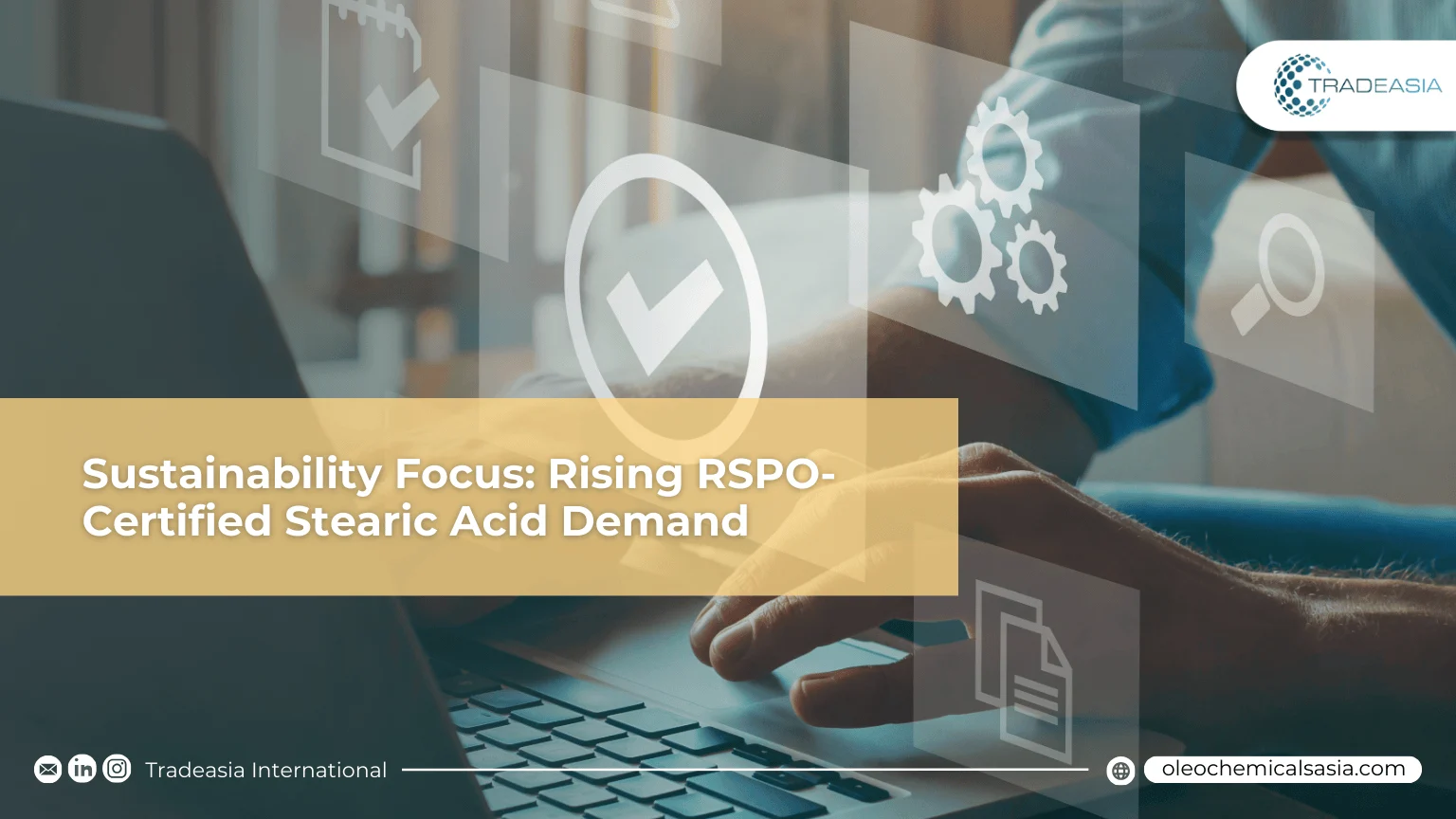Sustainability at the Core: Rising Demand for RSPO-Certified Stearic Acid in September

Table of Content
- Growing Demand Amid Rising Sustainability Standards
- Supply Pressures and Strategic Industry Responses
Growing Demand Amid Rising Sustainability Standards
In September 2025, the demand for RSPO-certified stearic acid has grown notably, marking a clear shift in the global market toward sustainability and supply chain accountability. Industries such as personal care, rubber manufacturing, and food processing are leading this movement, emphasizing that ethical sourcing is no longer optional but central to long-term business growth. The forecasted 15% demand increase in the second half of 2025 illustrates how companies are positioning themselves ahead of upcoming sustainability benchmarks, particularly as global climate talks like COP30 place greater scrutiny on industry practices.
Bridging this demand with supply solutions requires strong partnerships. Companies like Tradeasia International, a key distributor of palm-based and oleochemical products, are playing an increasingly vital role in connecting producers and buyers within sustainable value chains. As one industry leader noted, “sustainability is not just a compliance measure but a strategic advantage for companies who act early.” This perspective highlights why securing reliable access to RSPO-certified materials today is crucial for ensuring resilience tomorrow.
Supply Pressures and Strategic Industry Responses
Despite robust demand, supply challenges continue to create volatility. Malaysia reported a 7% year-over-year decline in palm oil production during early 2025 due to adverse weather, resulting in a shortage of palm stearin—the key raw material for stearic acid, by as much as 20,000–40,000 metric tons per month. On top of this, Indonesia’s decision to raise its crude palm oil export levy to 10% has tightened costs further. Together, these pressures risk pushing stearic acid prices up by USD 20–40 per metric ton, creating a more complex procurement landscape.
To counter these risks, industries are prioritizing sustainable sourcing to safeguard operations and brand reputation. The personal care sector alone accounts for 44% of total stearic acid demand in markets such as the U.S., where consumers increasingly demand eco-friendly formulations. Similarly, the rubber industry is intensifying its reliance on RSPO-certified inputs to meet both regulatory and consumer expectations, while food processors seek sustainable, plant-based ingredients to capture shifting consumer preferences.
In conclusion, the rising demand for RSPO-certified stearic acid in September reflects the merging of sustainability commitments with business imperatives. Companies that proactively secure certified supply lines not only mitigate risks from supply shortages and price volatility but also strengthen their long-term competitive positioning in an evolving global market.
Sources:
-
Palm Chemicals - Global Demand for RSPO-Certified Stearic Acid Soars in 2025
-
Palm Chemicals - Malaysia Palm Oil Supply Challenges May Lift Stearic Acid Prices in 2025
-
Stearic Acid Market Growth and Trends - Various Market Reports

Leave a Comment